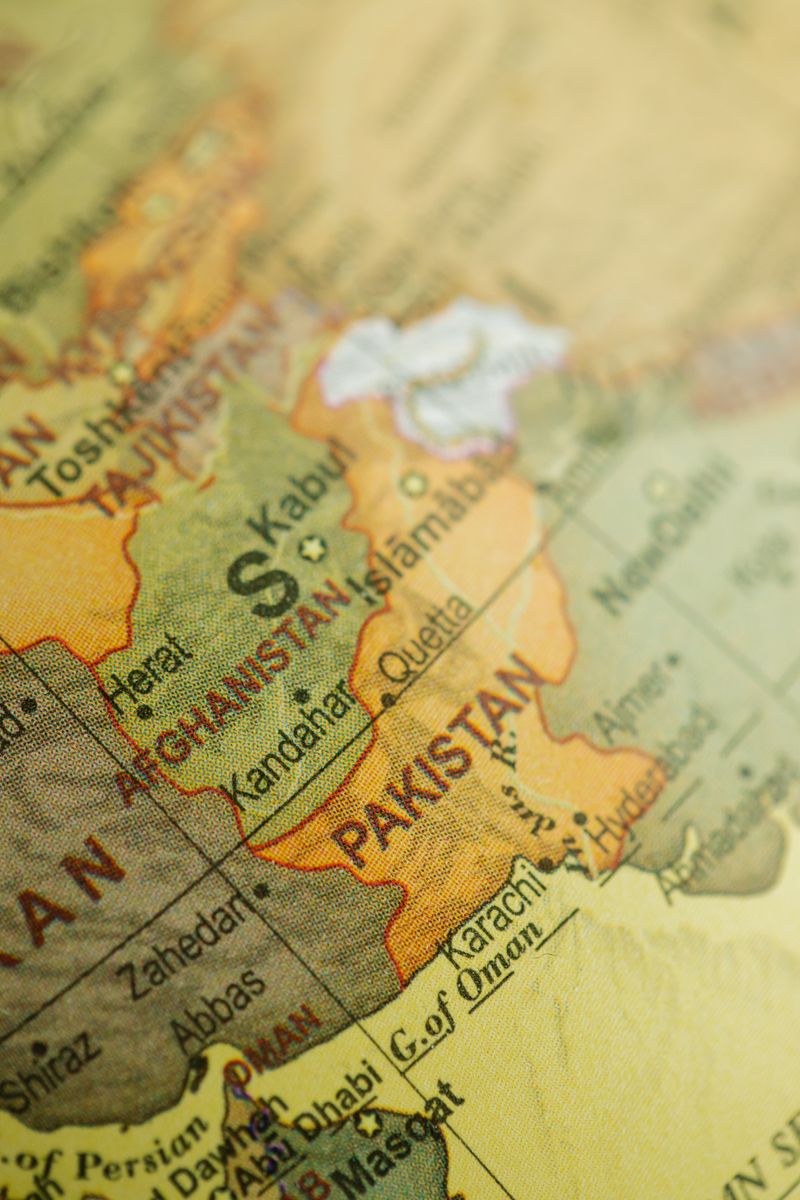Abbas was in India as part of the ICC’s list of presenters for the ongoing Cricket World Cup 2023. While the ICC provided no further details about the exact reason for her departure, the Indian media has reported that her past social media tweets, including one from 2014 where she made a derogatory remark about New Delhi, may have come under scrutiny.
It is worth noting that Pakistani fans and journalists are still awaiting visas to travel to India for the World Cup. The issuance of visas for the Pakistan team itself was delayed, with the approvals being granted just 48 hours before their departure. This tour marks Pakistan‘s first visit to India since the T20 World Cup in 2016.
Cricket, unfortunately, continues to be affected by the strained political relationship between the two neighbors and bitter rivals. Matches between India and Pakistan are rare occurrences, restricted mainly to multi-team events like the World Cup.
The controversy surrounding Zainab Abbas’s departure raises important questions about the role of politics in sports and the impact it has on athletes and individuals associated with the game. It is unfortunate that a simple tweet from several years ago has overshadowed Abbas’s professionalism and dedication to her craft.
Social Media and the Pitfalls of Public Figures
Zainab Abbas’s case is a stark reminder of the power and pitfalls of social media. In today’s hyper-connected world, public figures must exercise caution when expressing their opinions online, understanding that their words can have far-reaching consequences. While individuals have the right to express themselves freely, they must also be sensitive to the diverse audiences they engage with.
In this case, Abbas’s tweet from 2014 resurfaced and caused controversy. It serves as a lesson to all public figures that what is posted on social media can have a lasting impact, and they must be mindful of the potential consequences of their words.
Sports as a Unifying Force
Cricket has long been touted as a sport that can bridge divides and bring people from different backgrounds together. However, the political tensions between India and Pakistan have often spilled over into the sporting arena, limiting opportunities for bilateral cricket matches between the two countries.
While multi-team events like the Cricket World Cup provide brief moments of excitement and competition between India and Pakistan, the absence of regular bilateral series is a missed opportunity for fostering goodwill and promoting unity through sport. It is disheartening to see politics overshadow the spirit of cricket and prevent fans from witnessing the thrill of matches between two cricket-loving nations.
Editorial Opinion: The Need for Greater Sporting Diplomacy
It is crucial for both India and Pakistan, as well as the ICC, to recognize the power of sports as a tool for diplomacy and bridge-building. Sporting events can create common ground, stimulate dialogue, and foster understanding between nations.
While it is understandable that political tensions may impede bilateral series, it is essential for cricket boards, governments, and the ICC to explore avenues for greater sporting diplomacy. Initiatives such as neutral venue matches, joint training camps, and exchange programs for players and coaches can help create positive connections and enhance sporting ties despite the political challenges.
At the same time, it is equally important for public figures to exercise caution when expressing their views publicly, especially on sensitive topics. Social media platforms should also consider implementing measures to prevent the negative consequences that can arise from resurrecting old posts and comments.
Advice for Public Figures:
In today’s digital age, public figures must pay close attention to their online presence and the impact it can have on their careers and personal lives. Here are some key recommendations:
1. Think Before You Post:
Before sharing your thoughts or opinions on social media, take a moment to consider the potential consequences. Ensure that your words are respectful, inclusive, and align with your professional values.
2. Separate Personal and Professional Profiles:
Maintain a clear distinction between your personal and professional social media accounts. Use your personal account for personal interactions and ensure that your professional account reflects your values and the message you want to convey to your audience.
3. Regularly Review Your Online Presence:
Periodically review your social media accounts and delete any posts or comments that may be misinterpreted or do not align with your current views. It is better to be proactive and ensure your online presence accurately represents your beliefs and aspirations.
4. Seek External Advice:
If you have concerns about a particular post or comment, seek advice from trusted individuals or professionals who can provide an objective perspective. They can help you navigate potential pitfalls and offer guidance on how to handle controversial situations.
In conclusion, the controversy surrounding Zainab Abbas’s departure from India highlights the complex intersection between sports, politics, and social media. It serves as a reminder for public figures to be mindful of their online presence and the potential impact their words can have. Additionally, it emphasizes the need for greater sporting diplomacy to build bridges and foster understanding between nations.

<< photo by Lara Jameson >>
The image is for illustrative purposes only and does not depict the actual situation.
You might want to read !
- India’s Deportation of Pakistani Journalist Zainab Abbas: A Blow to Press Freedom in South Asia
- Tragedy Strikes Pickering Casino: Security Guard Fatally Shot in Act of Violence
- LeSean McCoy Doesn’t Miss a Chance to Troll Dak Prescott After …
- USC Football: Caleb Williams’ Heroics Not Sustainable for Trojans as They Grapple with Team Challenges
- Canada ‘closely monitoring’ Afghanistan after devastating earthquake claims multiple lives




